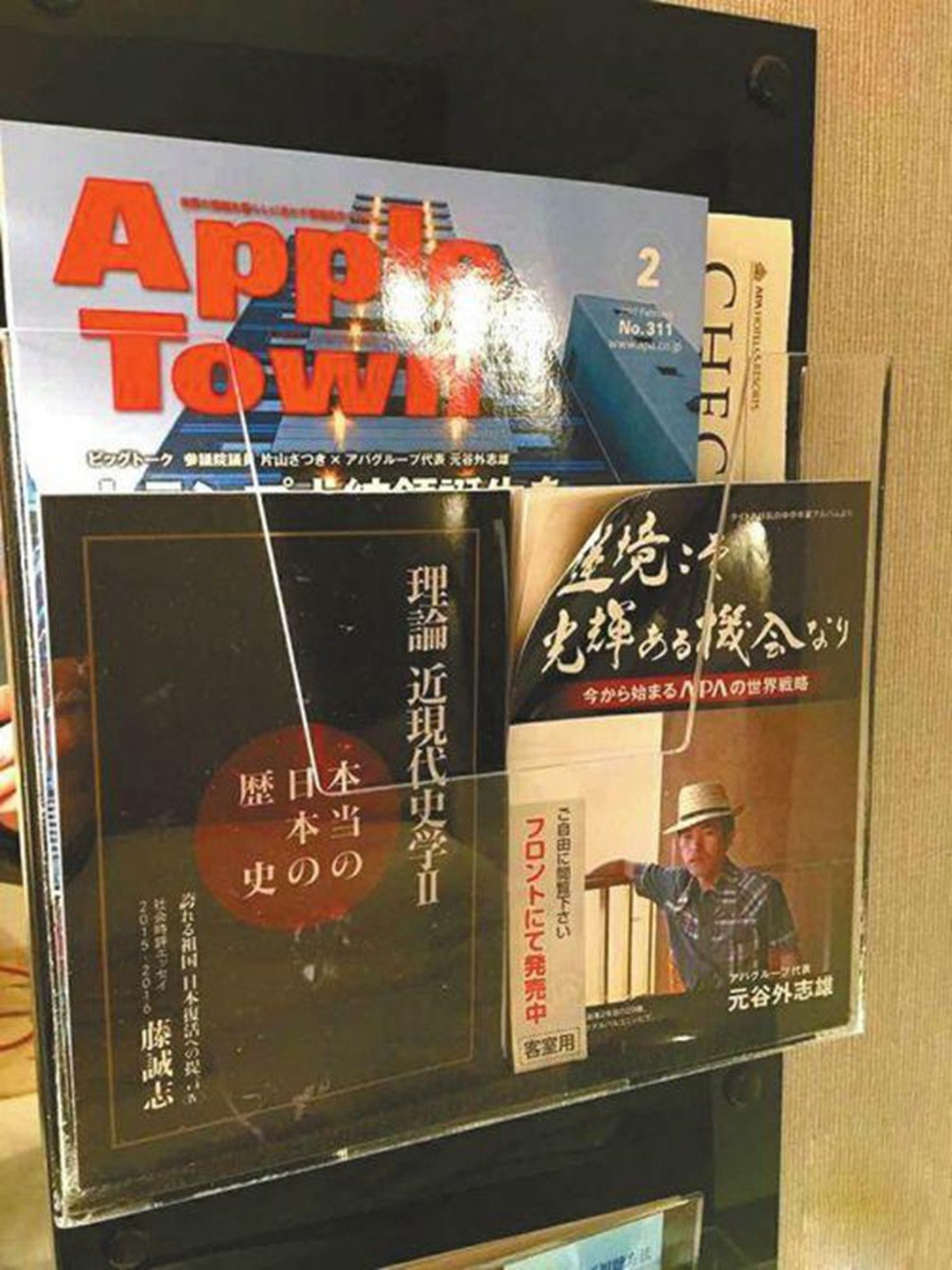Xinhua column by Yan Lei
A Japanese hotel chain has sparked fury on social media recently for placing books in its guest rooms denying the Nanjing Massacre and that the forced recruitment of "comfort women" ever happened.
The provocative act by the hotel chain deals a strong blow to the people of Japan's close neighbors, such as China and South Korea, who suffered from Japan's brutal invasion over 70 years ago, and highlights the urgent need for Japan to truly reflect on history.
The APA hotel chain, who owns over 400 hotels with more than 66,000 rooms, put copies of the book titled: "The Real History of Japan - Theoretical Modern History" by Seiji Fuji, the pen name of the hotel's CEO, in all its rooms in Japan. The book has also been put on sale in the hotel's lobby.
The book, a fabrication based on the rhetoric of Japanese right-wing politics, has been denounced as nonsense by historians.
For example, the book said that there were no eyewitness accounts of the Nanjing Massacre by observers from countries other than China and Japan, despite the existence of a plethora of diaries, letters, and photographs.
In fact, more than 20 people from Europe and the United States recorded the atrocities and their documents have been preserved by UNESCO in its Memory of the World Register.

Books denying Japan's history of aggression before and during World War II are on display in a room of an APA hotel. /Xinhua Photo
The book also claimed that there were only 200,000 people in Nanjing in December 1937, though authoritative historians have pointed out the fact that more than 600,000 people lived in Nanjing at that time and around 300,000 soldiers and civilians were killed by the invading Japanese army.
Many Chinese tourists who visited Japan and stayed in the APA hotel felt indignant and duped when they found out about the books.
APA sees a large portion of its guests coming from China and South Korea, two of Japan's close neighbors which still vividly remember the war atrocities Japan committed to them before and during World War II.
Despite the protests, the APA hotel chain has refused to remove the controversial books from its rooms.
The books, consistent with the right-wing point of view expressed by some historical revisionists there, in fact, exemplifies the negative effects caused by the Japanese government's refusal to face history squarely.
The Japanese government is duty bound to expose its people to correct, factual history. But what it has done is largely suppress the true facts of war and whitewashed Japan's past war crimes, which hinders its people from knowing the truth.
An exhibition curated by the Women's Active Museum on War and Peace (WAM) in Japan shows that middle school history textbooks compiled by seven publishers in Japan mentioned the "comfort women" issue in 1997, while none of them mentioned the issue in 2012 copies of the textbooks.
In April 2015, the Japanese education ministry revised some junior high school history textbook passages regarding Japan's World War II barbarities. For example, in a passage on the Nanjing Massacre, the original statement that the Japanese army "killed many captives and civilians" was watered down to read as "captives and civilians were involved" in the tragedy and "casualties were exposed."
It's universally acknowledged that only by squarely facing up to history can Japan face its future and prevent war atrocities from happening again. This should start by Japan offering those it wronged a sincere apology and giving its people more access to the truth about the war.
Meanwhile, the APA hotel chain, which is keen on expressing its rightist, distorted historical view, would inevitably face boycott from its customers who were hurt by the provocative act.
(The opinion does not necessarily reflect the view of CGTN.)









